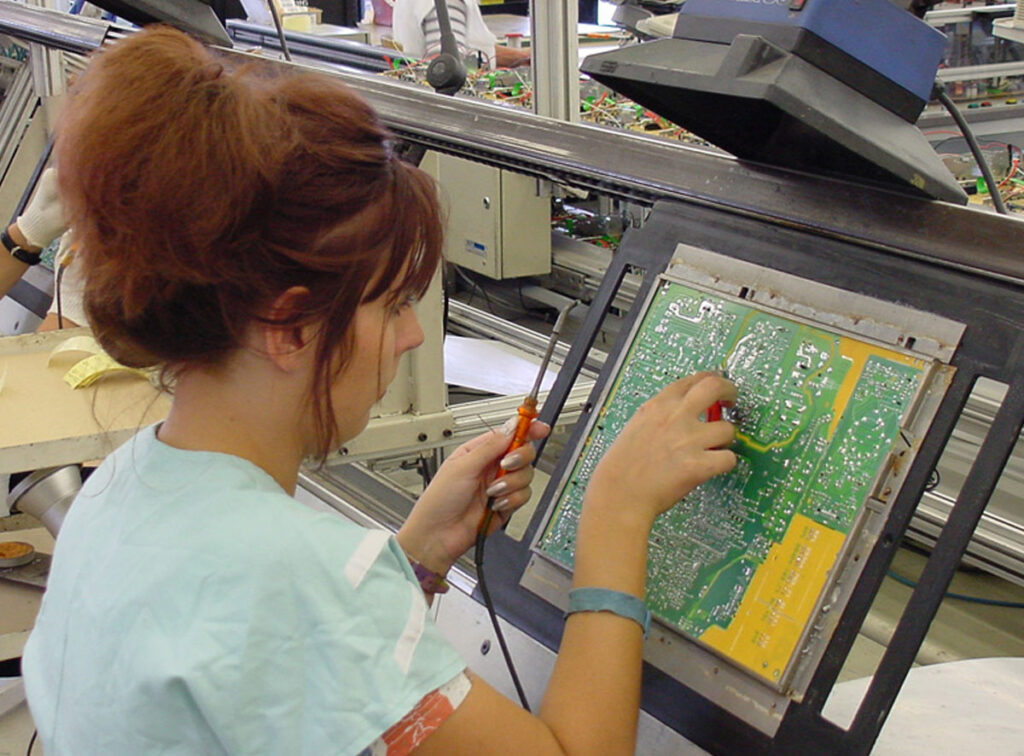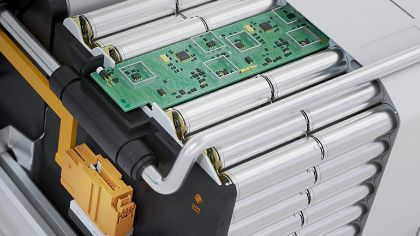Exciting PCB Assembly Jobs: Ready to Jumpstart Your Career?

PCB assembly jobs involve the process of assembling printed circuit boards (PCBs) by attaching various electronic components to the PCB using soldering or other methods. These jobs can be found in a variety of settings, including electronics manufacturing companies, contract manufacturers, and PCB design and prototyping companies.
To perform PCB assembly work, individuals typically need to have knowledge of electronic components, soldering techniques, and PCB layout. They may also need to be familiar with various tools and equipment used in the assembly process, such as soldering irons, reflow ovens, and pick-and-place machines.
PCB assembly jobs may involve working with a team to assemble large quantities of PCBs, or working individually on smaller projects. In some cases, the work may be done manually, while in others it may be automated using specialized equipment. The specific tasks and responsibilities for PCB assembly jobs will vary depending on the employer and the specific project.
Are you ready to jumpstart your career with a PCB assembly job? Have you been looking for a job that offers you a chance to work with cutting-edge technology and be part of the ever-evolving world of electronics? If so, then you should consider looking into PCB assembly jobs. This article will give you an introduction to PCB assembly jobs, explain what they entail, look at the different types of PCB assembly jobs available, outline the qualifications necessary to get one, and provide some tips on how to succeed in your chosen job.
Introduction to PCB Assembly Jobs
A PCB assembly job involves working with printed circuit boards (PCBs) to assemble them into a complete and functioning product. PCBs are the components that enable the electrical connections in a variety of devices and machines, and the job of a PCB assembly worker involves assembling the components onto the board. This job requires a great deal of skill and precision, as it involves soldering, connecting, and testing the PCBs to ensure that they work correctly.
If you are interested in a career in the electronics industry, then PCB assembly jobs could be the perfect fit for you. This type of job is in high demand and provides competitive salaries, as well as the chance to work with cutting-edge technology. In addition, PCB assembly jobs offer a great deal of job security, since the electronics industry is constantly growing and evolving.
What is PCB Assembly?
PCB assembly is the process of assembling the components of a printed circuit board (PCB) onto the board itself. This process involves soldering the components, connecting them, and testing the board to make sure that it is working correctly. It is a highly skilled job that requires a great deal of precision and accuracy, as even the smallest mistake can cause the board to malfunction.
The components of a PCB include resistors, capacitors, transistors, and integrated circuits. These components must be soldered onto the board in the correct order and at the correct locations. Once the components are soldered on, the board is tested to ensure that it is working correctly. If any problems are found, then the board must be reworked or replaced.
Different Types of PCB Assembly Jobs
There are a variety of different types of PCB assembly jobs available, depending on the type of product that you are assembling. Some of the most common types of PCB assembly jobs include:
- Soldering Technician: A soldering technician is responsible for soldering components onto the board. This job requires a great deal of precision and accuracy, as even the smallest mistakes can cause the board to malfunction.
- Quality Assurance Technician: A quality assurance technician is responsible for testing the board to make sure that it is working correctly. This job involves running tests on the board to make sure that all of the components are functioning correctly.
- Repair Technician: A repair technician is responsible for repairing any issues that may arise with the board. This job requires a great deal of troubleshooting skills in order to identify and fix any problems with the board.
- Design Technician: A design technician is responsible for designing the board layout. This job involves creating the schematics for the board, as well as designing the layout of the components.
Qualifications Necessary for PCB Assembly Jobs
In order to be successful in a PCB assembly job, there are certain qualifications that you should have. The most important qualifications for a PCB assembly job include:
- Technical knowledge: You should have a good understanding of electronics and be familiar with the components and schematics used in PCB assembly.
- Soldering skills: You should have experience with soldering and be able to solder components onto the board with precision and accuracy.
- Attention to detail: You should be able to pay attention to detail and be able to identify any potential issues with the board.
- Troubleshooting skills: You should have good troubleshooting skills in order to be able to identify and fix any potential issues with the board.
- Computer skills: You should have good computer skills in order to be able to use the necessary software for designing and testing the board.
Benefits of PCB Assembly Jobs
PCB assembly jobs offer a variety of benefits, making them an attractive choice for those looking for a job in the electronics industry. Some of the most common benefits of PCB assembly jobs include:
- Competitive salaries: PCB assembly jobs offer competitive salaries, making them an attractive option for those looking to make a good living.
- Job security: The electronics industry is constantly growing and evolving, so PCB assembly jobs offer a great deal of job security.
- Cutting-edge technology: You will be working with cutting-edge technology, giving you the opportunity to stay up-to-date on the latest advancements in the industry.
- Flexible working hours: Many PCB assembly jobs offer flexible working hours, allowing you to work when it best suits you.
- Variety: You will have the opportunity to work on a variety of different projects and products, giving you a chance to expand your skills and knowledge.
How to Find PCB Assembly Jobs
Finding PCB assembly jobs can be a daunting task, but there are a few steps that you can take to make the process easier.
- Research the industry: Research the electronics industry to get an understanding of the different types of PCB assembly jobs available and the qualifications necessary for each job.
- Network: Networking is an important part of finding any job, so it is important to make connections in the industry in order to find out about any potential job openings.
- Look online: Look online for job postings and make sure to apply to any that you think you are qualified for.
- Reach out to companies: Reach out to companies that you are interested in working for and inquire about any potential job openings.
How to Prepare for PCB Assembly Interviews
Once you have found a PCB assembly job that you are interested in, it is important to prepare for the interview in order to make sure that you make the best impression possible. Here are a few tips on how to prepare for a PCB assembly interview:
- Research the company: Make sure to research the company so that you can show that you are knowledgeable about the company and its products.
- Prepare your answers: Think about the questions that you might be asked and prepare answers ahead of time.
- Practice your skills: Practice your soldering and troubleshooting skills in order to show that you are capable of doing the job.
- Dress appropriately: Make sure to dress appropriately for the interview in order to make the best impression.
Tips for Succeeding in Your PCB Assembly Job
Once you have landed a PCB assembly job, it is important to make sure that you succeed in your job. Here are a few tips on how to succeed in your PCB assembly job:
- Be organized: Being organized is an important part of succeeding in any job, and it is especially important for PCB assembly jobs. Make sure that you have an organized workspace and that you follow an organized process when working on projects.
- Pay attention to detail: Paying attention to detail is an important part of succeeding in any PCB assembly job. Make sure to double-check all of your work in order to make sure that there are no mistakes.
- Take initiative: Taking initiative is an important part of succeeding at any job, and it is especially important for PCB assembly jobs. Make sure to take initiative and go above and beyond in order to make sure that the project is completed in a timely and efficient manner.
- Stay up to date: Staying up to date on the latest advancements in the electronics industry is an important part of succeeding in a PCB assembly job. Make sure to keep up with the latest news and trends in the industry in order to stay ahead of the competition.
Resources for Advancing Your PCB Assembly Career
Once you have gotten your foot in the door in the electronics industry, there are a few resources that you can use to advance your PCB assembly career. Here are a few resources for advancing your PCB assembly career:
- Online courses: There are a variety of online courses available to help you learn more about PCB assembly and stay up to date on the latest advancements in the industry.
- Professional organizations: Joining a professional organization such as the Institute of Electrical and Electronics Engineers (IEEE) is a great way to network and make connections in the industry.
- Conferences: Attending conferences and events related to PCB assembly is a great way to stay up to date on the latest advancements in the industry and make connections with other professionals.
- Mentors: Finding a mentor in the industry is a great way to learn more about the industry and get advice on how to succeed.
Conclusion
PCB assembly jobs are a great way to jumpstart your career in the electronics industry. These jobs offer competitive salaries, job security, and the chance to work with cutting-edge technology. In order to be successful in a PCB assembly job, it is important to have the necessary qualifications and to prepare for the interview. Once you have landed the job, it is important to stay organized, pay attention to detail, take initiative, and stay up to date on the latest advancements in the industry. There are a variety of resources available to help you advance your PCB assembly career, such as online courses, professional organizations, conferences, and mentors.
Are you ready to jumpstart your career with a PCB assembly job? If so, then you should make sure to use the tips and resources outlined in this article to help you succeed. Good luck!

